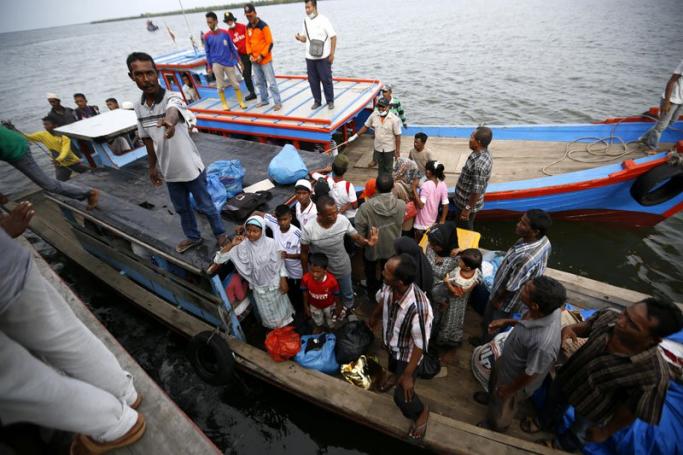The United States on May 15 upped the pressure on Southeast Asian nations, urging them not to float boatloads of desperate migrants back out to sea.
US Secretary of State John Kerry called his Thai counterpart on May 14 "to discuss the situation of migrants in the Andaman Sea and to discuss the possibility of Thailand providing temporary shelter for them," a State Department spokesman said.
"We urge the countries of the region to work together quickly, first and foremost to save the lives of migrants now at sea who are in need of an immediate rescue effort," spokesman Jeff Rathke told reporters.
Thanking Thailand, Indonesia and Malaysia for taking in 3,000 people this week alone, Rathke said: "We urge governments in the region to refrain from push-backs of new boat arrivals."
Washington was in talks about ways it could help, and planned to send a senior delegation to emergency talks convened by Thailand on May 29, he said.
"This is an emergency that we believe needs to be addressed with appropriate speed and resolve through a regionally coordinated effort to save the lives of the thousands of vulnerable migrants and asylum seekers," Rathke added.
The Indonesian and Malaysian policy of turning away stricken boats filled with Bangladeshis and ethnic Rohingya from Myanmar has been met with outrage, including from Washington and the United Nations.
But despite mounting calls to address the problem, hopes of finding a coordinated solution look dim with Malaysia, Indonesia and Thailand vowing to turn back stricken boats and Myanmar threatening to boycott the planned regional summit on the issue.
It is unclear how many migrants are adrift at sea in Southeast Asia. Activists estimate up to 8,000 may be at sea, with horrific tales emerging of passengers abandoned by abusive smugglers, horribly cramped conditions, starvation and death.
© AFP
You are viewing the old site.
Please update your bookmark to https://eng.mizzima.com.
Mizzima Weekly Magazine Issue...
14 December 2023
Spring Revolution Daily News f...
13 December 2023
New UK Burma sanctions welcome...
13 December 2023
Spring Revolution Daily News f...
12 December 2023
Spring Revolution Daily News f...
11 December 2023
Spring Revolution Daily News f...
08 December 2023
Spring Revolution Daily News f...
07 December 2023
Diaspora journalists increasin...
07 December 2023
Naungcho to be transformed into tourist destination












